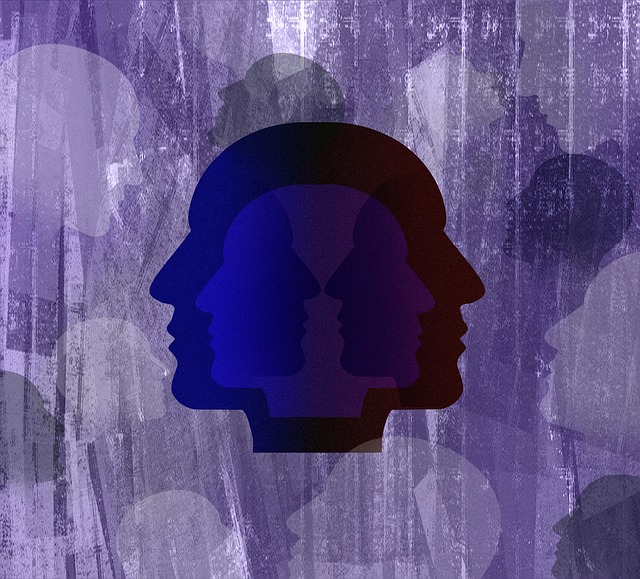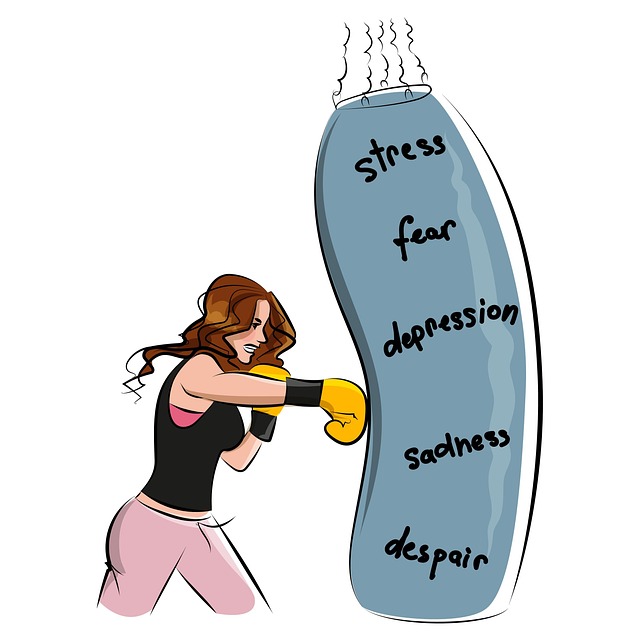In diverse Northglenn, cultural sensitivity is key to effective mental healthcare. Recognizing unique cultural views on mental illness, like stigma and family shame, empowers therapists to create inclusive environments through training and personalized care. This approach builds trust, aligns interventions with values, and improves outcomes for all patients, especially those from various backgrounds accessing Northglenn Suicide Prevention Therapy services.
In an increasingly diverse society, cultural sensitivity is paramount in mental healthcare. This article explores the profound impact of cultural diversity on mental health and its critical role in therapeutic practices, using Northglenn Suicide Prevention Therapy as a case study. We delve into strategies for culturally competent care, emphasizing the significance of building safe, inclusive spaces for all communities. By understanding and addressing these considerations, mental health professionals can provide more effective and compassionate services to a broad range of clients.
- Understanding Cultural Diversity and Its Impact on Mental Health
- The Role of Cultural Sensitivity in Northglenn Suicide Prevention Therapy
- Strategies for Culturally Competent Practice in Mental Healthcare
- Building Safe Spaces: Creating Inclusive Environments for Diverse Communities
Understanding Cultural Diversity and Its Impact on Mental Health

In a society as diverse as the one we live in today, recognizing and understanding cultural sensitivity is paramount in mental healthcare practices, especially in areas like Northglenn where communities encompass various ethnic backgrounds and beliefs. Cultural diversity enriches our nation but also presents unique challenges for mental health professionals. Each culture carries its own set of values, norms, and traditions that can significantly influence how individuals perceive and express mental illness. For instance, some cultures may view emotional distress as a personal weakness or family shame, hindering patients from seeking help.
Understanding these cultural nuances is crucial in fostering effective therapy. Northglenn Suicide Prevention Therapy programs, for example, should incorporate Healthcare Provider Cultural Competency Training to equip professionals with the skills to address mental illness stigma reduction efforts within diverse communities. By embracing cultural sensitivity, therapists can create safe spaces that resonate with patients from all backgrounds, thereby enhancing trust and improving outcomes in anxiety relief and overall mental well-being.
The Role of Cultural Sensitivity in Northglenn Suicide Prevention Therapy

In the context of Northglenn Suicide Prevention Therapy, cultural sensitivity is a cornerstone that ensures the effectiveness and accessibility of mental healthcare services. Understanding the diverse cultural backgrounds and beliefs of individuals seeking help is vital to creating a safe and supportive environment. By integrating cultural sensitivity into therapy practices, professionals can adapt their approaches to meet the unique needs of every client. This involves recognizing and respecting individual and communal values, customs, and expressions of emotional well-being promotion techniques that vary across cultures.
Cultural sensitivity in Northglenn Suicide Prevention Therapy fosters open communication, strengthens therapeutic alliances, and enhances the accuracy of diagnoses. Mental health practitioners who are attuned to cultural nuances can better navigate conversations around positive thinking and mental health awareness, making sure interventions resonate with clients’ life experiences and beliefs. This personalized approach not only improves therapy outcomes but also encourages individuals from diverse backgrounds to seek help without barriers, ultimately contributing to a more inclusive and effective mental healthcare system.
Strategies for Culturally Competent Practice in Mental Healthcare

Incorporating cultural sensitivity into mental healthcare practice is paramount for building trust and ensuring effective treatment. Northglenn Suicide Prevention Therapy centers often serve diverse communities, necessitating a nuanced approach. Healthcare providers can foster culturally competent care by actively listening to and understanding patients’ backgrounds, beliefs, and experiences. This involves learning about different cultural practices related to mental health, such as traditional healing methods or spiritual rituals. By integrating these insights into therapy sessions, practitioners create a safe and inclusive environment where individuals feel validated and respected.
Additionally, training in crisis intervention guidance is vital for navigating cultural sensitivities during emergencies. Burnout prevention strategies for healthcare providers also play a role, as cultural awareness can mitigate stress and enhance job satisfaction. For instance, recognizing the impact of systemic barriers on mood management requires a comprehensive understanding of each patient’s unique cultural landscape. Through continuous education and self-reflection, mental health professionals can deliver services that are sensitive to these nuances, ultimately improving outcomes for diverse populations, including those in Northglenn.
Building Safe Spaces: Creating Inclusive Environments for Diverse Communities

In a diverse society like Northglenn, where individuals from various cultural backgrounds coexist, it’s paramount that mental healthcare practices reflect and embrace this diversity. Building safe spaces within therapy settings is a powerful step towards creating inclusive environments for all communities. This involves understanding and respecting each client’s unique cultural context, beliefs, and traditions, ensuring their experiences are validated and honored. Mental health professionals can achieve this by incorporating culturally sensitive approaches into their practice, such as integrating mindfulness meditation or stress reduction methods tailored to specific cultures, thereby fostering a deeper connection between the therapist and the individual seeking help.
The design of mental health education programs plays a crucial role in this process. By teaching therapists about different cultural perspectives and practices, these programs enable them to offer more personalized care. This includes learning about the impact of systemic issues unique to diverse communities and how they can contribute to or exacerbate mental health challenges. Ultimately, creating such inclusive spaces not only enhances the effectiveness of therapy but also encourages open dialogue and trust between healthcare providers and patients from various cultural backgrounds, like those who might benefit from Northglenn Suicide Prevention Therapy services.
Cultural sensitivity is a cornerstone of effective mental healthcare, particularly in diverse communities like Northglenn. By understanding and respecting cultural differences, as highlighted by the case studies in Northglenn Suicide Prevention Therapy, practitioners can create inclusive environments that foster trust and improve outcomes. Implementing strategies for culturally competent practice, such as those discussed, is essential to ensuring all individuals receive compassionate and tailored care. Building safe spaces is not just about physical locations but also cultivating a mindset of acceptance and empathy, ultimately revolutionizing mental healthcare access and quality.














